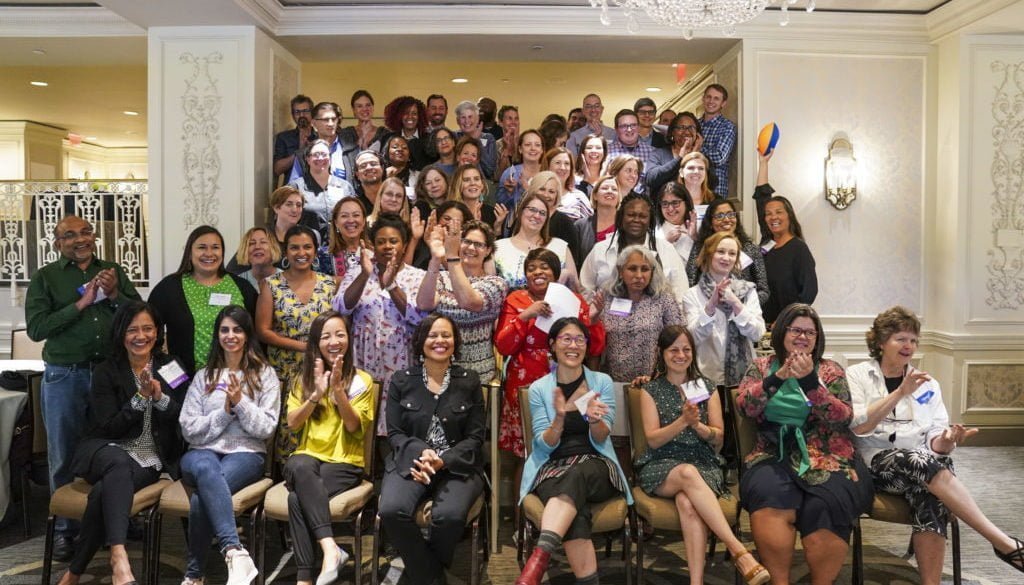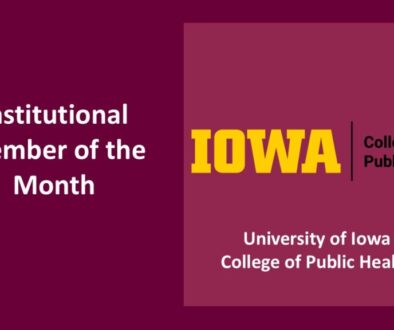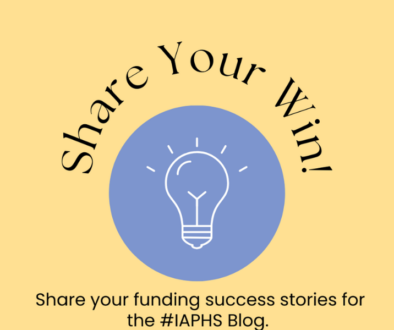Lessons Learned From Growing a Community of Research Leaders
Sarah GollustOn Friday, January 10, 2020, the Interdisciplinary Research Leaders (IRL) program, a Robert Wood Johnson Foundation (RWJF) leadership development program, issued its call for applications for the fifth cohort of fellows. It’s hard for me to believe that this program—one that we at the National Program Center at the University of Minnesota and key partners have nurtured since it was just a germ of an idea in summer 2015—has reached this stage of growth. Yet when I reflect on the depth of the relationships we’ve made and the lessons we’ve learned, I realize we have gained so much in fewer than 5 years since the program launched.
The Interdisciplinary Research Leaders program shares with IAPHS the objective to conduct population health research and accelerate the translation of such research into policy and practice. The program mission is to use research to catalyze the changes needed in systems and practices to advance health and health equity. To do this, IRL demands that research be done differently than usual—in two important ways.
First, the research must be purposefully interdisciplinary and engaged with the community of stakeholders who are best positioned to act on it. In practical terms, this means that IRL applicants are teams of three: two researchers from different disciplinary perspectives and a community partner grounded in the topic and holding the potential to take meaningful action resulting from the research.
Second, because the work of health equity is so daunting, and the stakes are so high, IRL teams do not work alone. We don’t cut teams a check for research funds and ask for a report at the end of the grant. Quite the contrary, IRL fellows become part of a learning community of reflective, compassionate, and courageous leaders who support one another in the challenging work through virtual and in-person gatherings over the three-year program.
As the Associate Director of Curriculum, my role is to design a curriculum to provide tangible skills in capacities we deem critical for building a Culture of Health: cultivating leadership for social change; applying equity, diversity, and inclusion lenses; facilitating meaningful community engagement; understanding the policy process so that research can be disseminated strategically to achieve policy goals; and implementing scientifically sound and community-relevant research methodologies.
I’ve learned a tremendous amount through the process of identifying courses, webinars, and in-person experiences to fulfill these curricular domains. And our initial evaluation data suggests the first three cohorts have too.
However, the most pronounced lessons that come to mind as I reflect on the cusp of the fifth program year were not the ones we built into the initial program design. These capacities have nonetheless become part of the IRL program culture, and I think they are likely the program ingredients that are most potent in transforming researchers and community partners into Research Leaders. These are:
- The importance of caring. In times of great vitriol, fellows need caring support and community to cheer them on and celebrate their victories, large or small, and laugh together. They also need to care—deeply and urgently—about the communities most threatened by poor health.
- The importance of conflict. Dismantling the systems that created inequity is not easy. Nor is conducting research with teammates who have different goals, priorities, and perspectives. Conflict—whether over meeting times or deep structural divisions—is expected and normal, and it can lead to innovation and growth.
- The importance of courage. The inequitable distribution of the determinants of health requires leaders who are willing to take risks; be explicit about the relationship between power, research, and health outcomes; and be ready to tell their own story about the causes and solutions to health challenges. Similarly, research leaders must have the courage to grapple with tough questions that emerge when translating research findings out of dusty academic journals and into board rooms, legislatures, community meetings, and the broader public sphere.
To foster a cohesive learning community of leaders who embody these three traits and to build collective research evidence, each cohort has specific theme areas. For Cohort 5, teams must apply under one of two theme areas: (1) Community Environment and Health (researching the physical, chemical, and biotic factors that impact human health and health equity in local communities); and (2) Families and Child Health (researching how to support families and promote child health, with a particular interest in fathers). If your work falls into these areas—and you are ready to tackle the challenges of research to promote health equity in a new way–I hope you will join us.
For details about applying, please see the 2020 Call for Applications, available at https://irleaders.org/apply.
The photo above shows members of Cohort 1 and Cohort 3 celebrate at the Interdisciplinary Research Leaders Communications and Policy Workshop in May 2019. Photo credit: Leigh Vogel.






All comments will be reviewed and posted if substantive and of general interest to IAPHS readers.